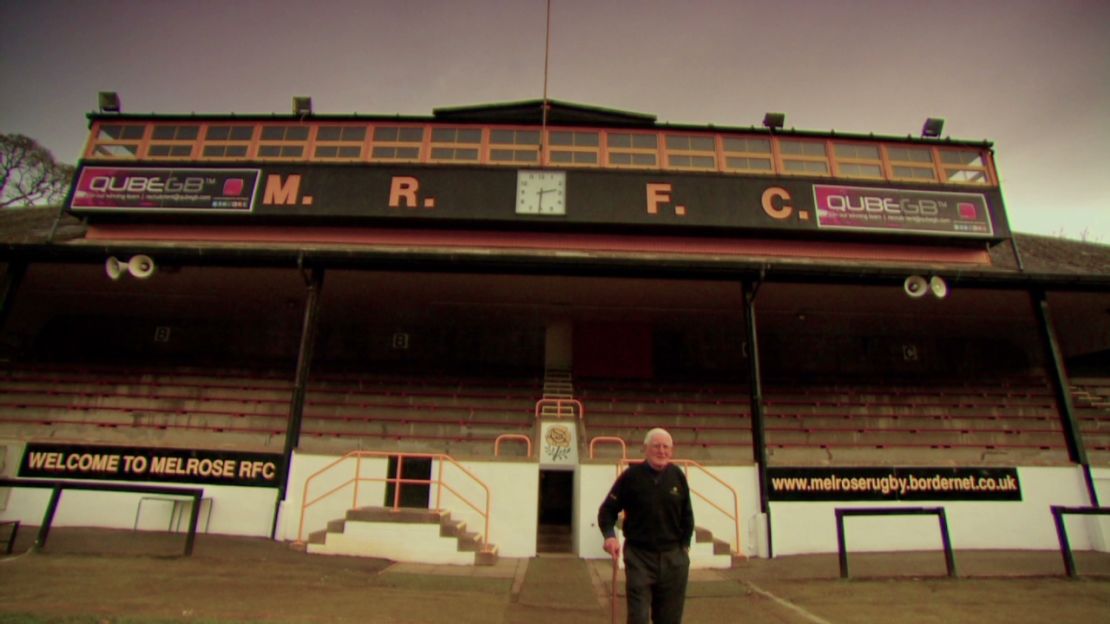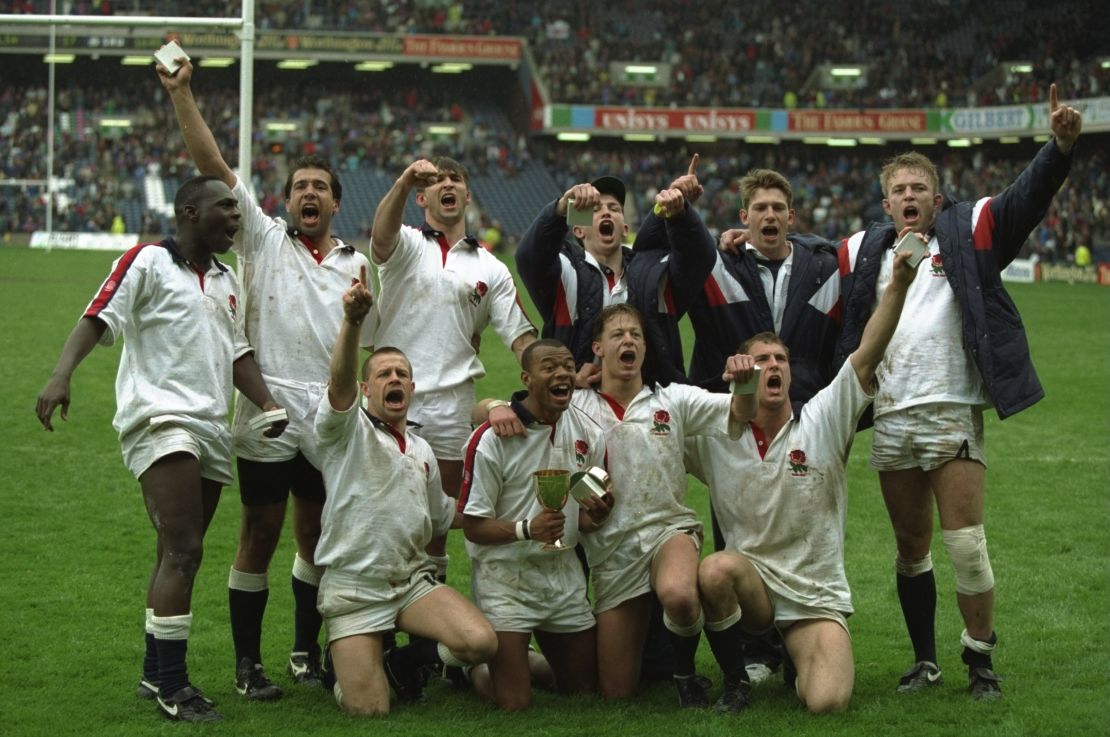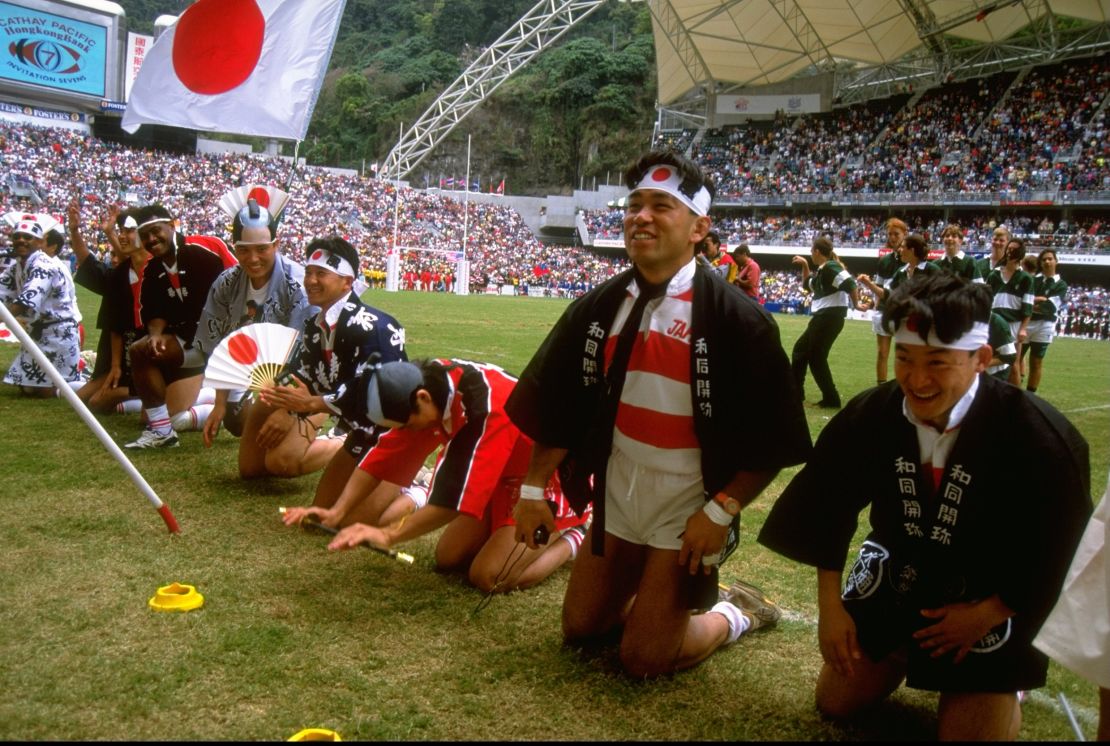Story highlights
Rugby sevens to make Olympic debut
First conceived in Scotland in 1883
On a cold winter’s day, the sun-kissed glamor of Rio de Janeiro could hardly be more remote, literally or figuratively, from the snow-blanketed Scottish border town of Melrose.
One is the bustling home to iconic landmarks such as the Christ the Redeemer statue and Copacabana beach. The other is quiet and unassuming – the quintessential country outpost.
But when the sport of rugby sevens makes its Olympic debut at the Rio 2016 Games in August, a glass or two will be raised in the rugged hinterlands of the Scottish borders.
It was here in 1883, after all, that the fast, exciting, high-scoring game was conceived, and the first sevens tournament held.

The event was the handiwork of a local butcher shop boy named Ned Haig who, with help from his boss David Sanderson, floated the idea of inviting local teams to play the popular 15-a-side game in shortened form to help the struggling Melrose Rugby Club.
“The pair of them came up with this idea at a time when the club was short of funds and this was to be a fundraiser,” Melrose RFC vice-president Douglas Hardie tells CNN’s World Rugby show.
Recalling the moment of inspiration some years later, Haig himself said: “Want of money made us rack our brains as to what was to be done to keep the club from going to the wall, and the idea struck me that a football tournament might prove attractive. But as it was hopeless to think of having several games in one afternoon with 15 players on each side, the teams were reduced to seven men.”

Haig’s inventive format was an immediate hit. Soon, other border towns such as Galashiels, Selkirk and Kelso began their own tournaments.
However, few have been able to compete with the aura of the Melrose event and its famous “Ladies Cup” prize – named so because the women of the town helped raise money to pay for a trophy when the tournament was first held, Hardie explains.
Barring two interruptions for war, the “Ladies Cup” has been presented to the winning team of the Melrose Sevens every year since, maintaining a proud tradition.
“(These days) the event draws a crowd of between 12,000 and 18,000 to the town,” Hardie says. “And when you consider that the town has a population of 2,200 it’s amazing to think that on April 9, 2016 that number will be times six or seven on the day.”
A slow burning export
Yet despite its undoubted popularity today, it took time for sevens to spread beyond its heartlands.
“Pre-war, seven-a-side rugby was more or less confined to Scotland,” says Jack Dun, a former player, captain, referee, Melrose club president and now unofficial historian.
“There was a big tournament, Middlesex Sevens at Twickenham. That was 1925 and there were smaller tournaments up and down the country. But I think it was post-war that it has developed and become worldwide,” he adds.
Dun was born in Melrose 90 years ago and is one of the last living links to the founder of sevens. He recalls with clarity the day of Haig’s funeral in 1939, and the first of the 73 Melrose sevens events he attended throughout his long life way back in 1934.
Naturally, sevens has experienced some considerable changes in the years since.
Commonwealth nations, where 15-a-side rugby was already popular, such as New Zealand, Australia and South Africa, were early converts as the simplified game’s popularity spread in the decades following World War II.
But it wasn’t until 1973 that the first international sevens tournament took place as part of the Scottish Rugby Union’s centenary celebrations at Murrayfield Stadium in Edinburgh.
The first Rugby Sevens World Cup attracted 24 nations to the same venue 20 years later, with surprise package England lifting the aptly-named Melrose Cup.

From Fiji to Cuba
In recent years, the annual Rugby Sevens World Series has attracted a colorful army of hard-drinking fans with a taste for fancy dress.
The sport is also now played in locations as disparate as the Pacific Island nations of Fiji and Samoa to one of the last surviving communist nations, Cuba.
Yet it was the announcement by the International Olympic Committee in October 2009 that rugby sevens would be included in both the 2016 and 2020 Summer Games that has catapulted the sport to another level altogether.
International Rugby Board president Bernard Lapasset described sevens’ Olympic inclusion as “an historic moment for rugby” and “an important result for the universal development of rugby, especially rugby sevens,” in comments carried by the Guardian newspaper in 2009.

But for many in Melrose, it’s difficult to comprehend just how the game invented in their unassuming town has grown.
When asked to ponder what Haig, the humble butcher boy, would make of such developments, Hardie says simply: “I think he would have been shellshocked.”
Yet that’s not to say he wouldn’t be proud or content at how events have panned out.
“I don’t think he would quite have believed it,” Hardie continues. “(But) it’s an absolute accolade to Ned Haig that the sport is to become an Olympic sport in 2016.”











